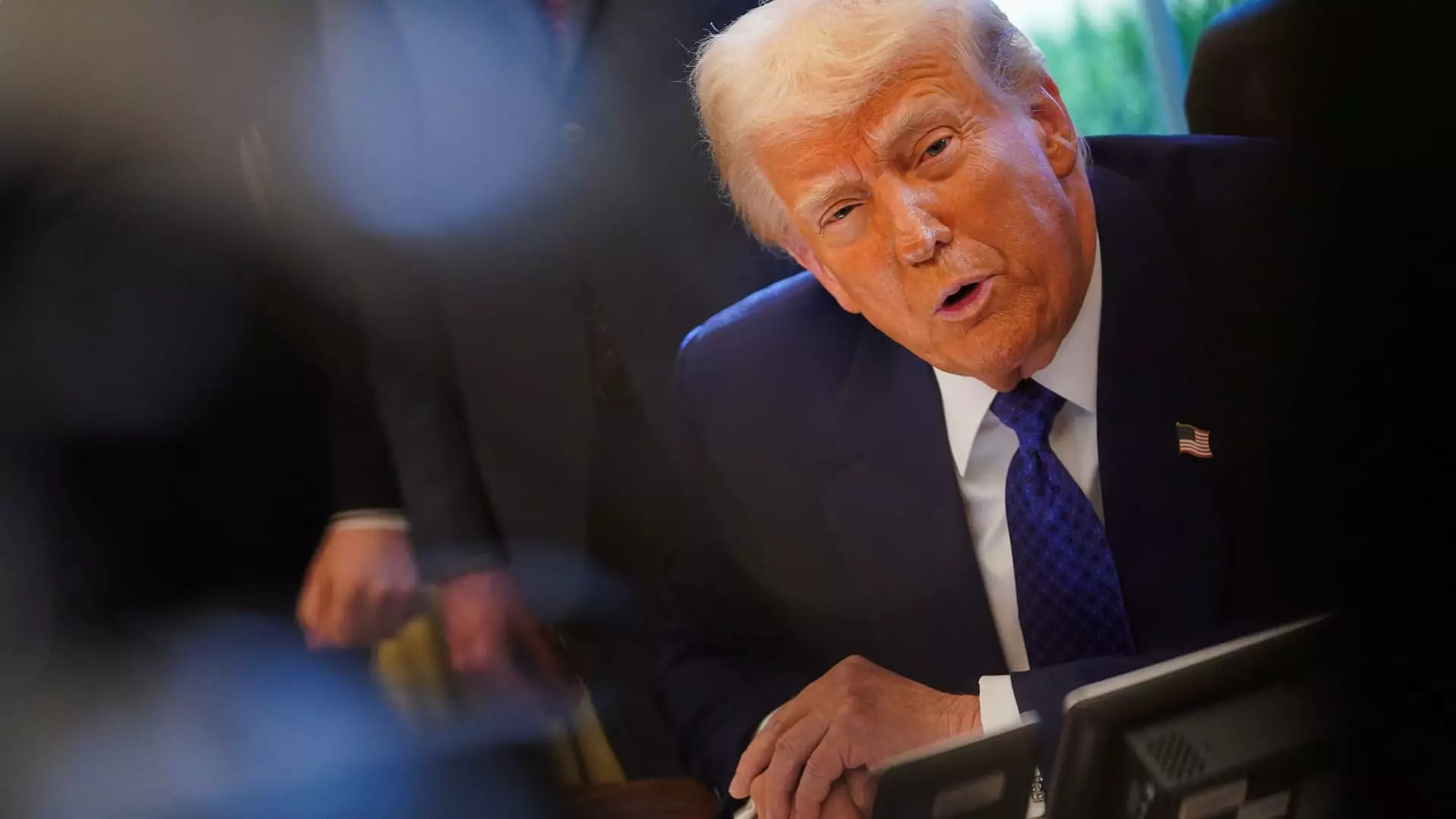The ongoing conflict in Ukraine has brought numerous geopolitical implications to the forefront, particularly concerning energy resources and military alliances. At the center of this turmoil is the Trump administration’s recent proposal to Ukraine, indicating a strategic pivot that allows the United States to gain a foothold in one of the world’s most valuable resources—rare earth minerals.
According to various U.S. officials, the Trump administration has suggested that Ukraine grant the United States a 50% ownership stake in the country’s rare earth minerals. Rather than a straightforward financial transaction, this arrangement seeks to function as a means for Ukraine to reimburse the billions in military support it has received from the U.S. since the onset of the war in February 2022. This unique proposition highlights a shift in how the U.S. aims to leverage its support for Ukraine, turning the country’s natural resources into a bargaining chip. This maneuver not only raises questions about the ethical implications of such arrangements but also reflects broader concerns about foreign influence in resource-rich nations.
The proposal was formally presented to Ukrainian President Volodymyr Zelenskyy by Treasury Secretary Scott Bessent during a meeting in Kyiv. It became clear that while there was interest from the U.S. side, Zelenskyy was hesitant, opting not to sign the draft agreement immediately. His decision to analyze the document further underscores the complexities inherent in negotiating with a superpower while grappling with the pressing issues of war and national security. The necessity for careful examination by Ukrainian legal advisors indicates a prudent approach amid uncertain geopolitical landscapes.
In the context of this situation, Zelenskyy articulated the essential role of U.S. military support for Ukraine’s survival, expressing a palpable concern for the country’s future without this backing. His statements at a global security conference were a timely reminder of the precarious state of Ukraine’s sovereignty and the critical dependence it has developed on external support.
The possibility of deploying U.S. troops to Ukraine to protect these minerals, contingent upon a peaceful resolution with Russia, complicates the narrative further. Defense Secretary Pete Hegseth recently asserted that such deployment would not form part of the security guarantees, yet the reality remains that the idea is still very much under consideration. The interplay between military presence and resource management reflects broader concerns regarding U.S. foreign policy strategies. Trump’s willingness to place American troops “on the table” as a means of enforcing peace denotes a perilous approach; such a move risks further entrenching the U.S. in foreign conflicts, with implications that could reverberate globally.
Much speculation surrounds the motivations behind these proposals. Trump has previously voiced dissatisfaction over financial commitments to Ukraine, dubbing Zelenskyy a superb negotiator. These characterizations suggest an underlying motivation to shift the narrative from merely providing aid to establishing long-term control over strategic resources.
Access to Ukraine’s rare earth minerals, crucial for various advanced technologies, represents a significant opportunity—not just for economic gain but also for a more robust position in the global supply chain. Trump has specifically mentioned a desire for the U.S. to control up to $500 billion worth of these minerals, highlighting the intertwining of business interests and geopolitical strategies. However, this raises critical ethical questions about national sovereignty and potential exploitation.
As discussions progress, the U.S. and Ukraine must navigate a delicate path that prioritizes Ukraine’s independence while also addressing American interests. The evolving partnership encapsulates a confluence of military, economic, and strategic concerns, necessitating a balanced approach that safeguards both nations’ interests and territorial integrity.
The intricacies of U.S.-Ukraine relations are becoming increasingly layered as they balance military alliances with economic ambitions. The proposal concerning rare earth minerals exemplifies a broader strategy that seeks to redefine the nature of international support. Navigating these complex waters will require diplomatic finesse, ethical considerations, and an unwavering commitment to Ukraine’s long-term stability. As conversations continue, the world watches closely, aware that this partnership could redefine not only regional politics but also global economic dynamics.


Leave a Reply